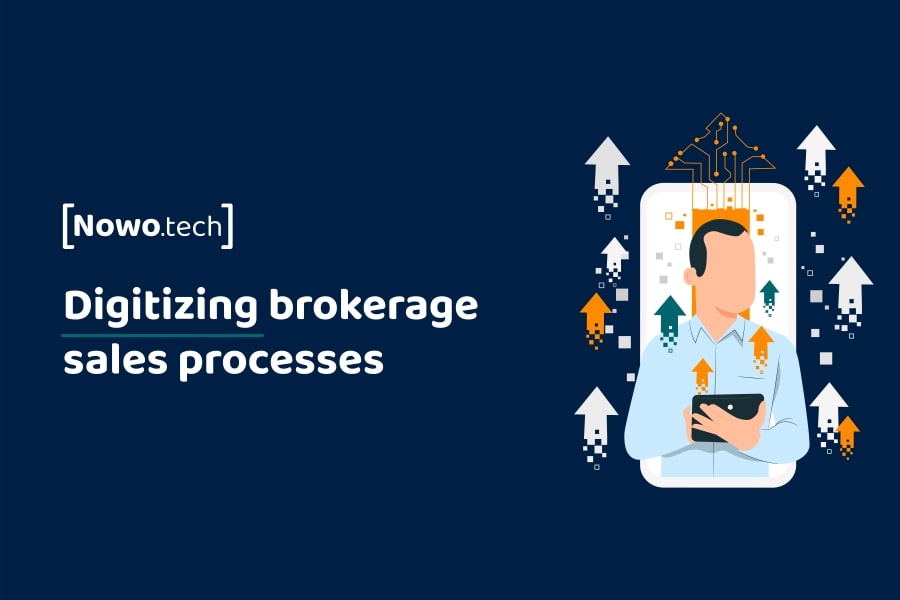Automation is changing the way business is done in every industry, and the insurance industry is no exception. As technologies advance, automation is becoming an essential tool for improving efficiency, reducing costs and enhancing the customer experience. In this article, we will discuss the benefits of automation and digital transformation in the insurance industry and how to leverage these changes to make any insurance business profitable.
Benefits of automation for insurance companies
Automation offers a number of benefits for insurance companies, including:
Improved efficiency
One of the ways automation is transforming the insurance industry is by improving efficiency. With automation, insurers can automate repetitive tasks, saving time and reducing the margin for error. For example, automating claims processes, such as collecting customer data and verifying information, can help reduce the time it takes to process a claim.
In addition, automation can also take a step further in the accuracy of tasks that require data analysis, such as risk assessment. Machine learning algorithms can analyze large amounts of data and help insurers identify patterns and trends that might otherwise go unnoticed. This can help insurers make more informed decisions and adjust rates and coverages.
Cost reduction
Automation is also helping insurers reduce operating costs. By automating repetitive tasks, insurers can reduce the need to hire additional staff. They can also reduce the time it takes to process a claim, which means lower costs for insurers and less delay for customers.
In addition, automating risk assessment processes can help insurers avoid situations of overinsurance or underinsurance, which means they can offer more accurate and appropriate rates and coverages to customers. This can help insurers reduce unwarranted premiums and unnecessary claims payments, which in turn can help reduce operating costs.
Improved customer experience
Automation can also help insurers improve customer experience and retain customers. With automation, insurers can provide faster and more personalized service, which can help reduce customer frustration. For example, automating claims processes can help reduce the time it takes to process a claim, which means less delay for customers.
In addition, automation can also help insurers provide more personalized service. Machine learning algorithms can analyze large amounts of data and help insurers identify patterns and trends in customer behavior. This can help insurers offer products and services that are more appropriate for individual customer needs.
How insurers can leverage automation
So how can insurers leverage automation? One way is through the implementation of business process management (BPM) systems. These systems automate repetitive tasks and help insurers manage business processes more optimally, from policy issuance to claims management.
Another way to leverage automation is through the use of chatbots and virtual assistants. These can help insurers provide faster and closer service to customers, which can improve the customer experience and reduce the need to hire additional staff.
In addition, insurers can also leverage automation through the implementation of machine learning and data analytics algorithms. These can help insurers analyze large amounts of data and identify patterns and trends that might otherwise go unnoticed. This can help insurers make more informed decisions and achieve greater accuracy of rates and coverages.
Challenges and cautions to consider when implementing automation in the insurance industry
While automation has many benefits, it also poses challenges and cautions to consider when implementing it in the insurance industry. One of the biggest challenges is ensuring data quality. When automating tasks that rely on accurate data, it is essential to ensure that the data is complete and accurate. This means that insurers must have a solid strategy for data management and a focus on data quality.
Another challenge is ensuring data security. When automating tasks, it is essential to ensure that data is secure and that there is no risk of data leakage or theft. Insurers must have a focus on security and ensure that they comply with regulations and privacy laws.
Conclusion
Automation is transforming the insurance industry and offers a number of opportunities to improve brokerages, insurance agencies and insurers. However, it is important to be aware of the challenges and cautions when implementing automation and to ensure that it is being implemented effectively and strategically. With the right approach and a sound strategy, insurers can take full advantage of the benefits of automation and improve their business.
It is worth noting that as technologies continue to advance, automation is likely to become increasingly important to insurers. Insurers that adopt automation early will have a competitive advantage over those that lag behind in technology adoption.









